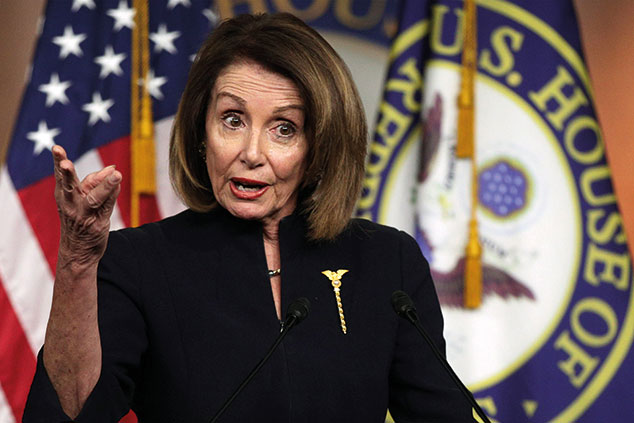
Last week, a redacted version of the Mueller report was released and US attorney-general William Barr’s conclusion that the investigation “did not establish that members of the Trump campaign conspired or co-ordinated with the Russian government” has not changed, says The Times. It is, however, also “careful not to rule out wrongdoing in Trump’s response to the investigation itself” and “lists 11 episodes of possible obstruction by the president”.
President Trump immediately declared vindication, but the report “undoubtedly gives ammunition to the Democrats who now control the House of Representatives and have it in their power to launch impeachment proceedings”.
Playing it cool
The report may have been the cue that many Democrats “were waiting for”, but the party is divided “over what, ultimately, should be their end game”, say Karoun Demirjian and Rachael Bade in The Washington Post. Democrats who have previously called for impeachment have been “emboldened by the report”, with two major presidential contenders, Elizabeth Warren and Julian Castro, urging immediate action. In contrast, House speaker Nancy Pelosi and her leadership team “have tamped down talk of impeachment”, arguing that the report “has changed nothing when it comes to the impeachment question”.
There’s a reason Pelosi is playing it cool, says Daniel DePetris in The Spectator. She “doesn’t like Donald Trump as a person or as a politician”, but she “doesn’t like impeachment either, viewing it as a politically treacherous effort that could cause as much anguish for Democrats as it does for Trump”. Pelosi understands how draining impeachment proceedings can be to the party who initiates them. She remembers that Bill Clinton “survived and thrived” when Republicans tried to impeach him, and “doesn’t want anything to do with a repeat, especially when the presidential election season is just getting started”.
One factor that complicates impeachment is the lack of Republican support, which it would need to succeed in the Senate, say Burgess Everett and Melanie Zanona in Politico magazine. While at-risk Republican lawmakers “don’t love the portrayal of Trump’s repeated attempts to kill the probe into pro-Trump Russian interference in the 2016 campaign”, they “don’t feel the need to create any new space between them and the president” either. The desire to stay in Trump’s “good graces” and “keep his supporters” appears to “override any interest in using the episode to appeal to swing voters”.
Still, Trump shouldn’t breathe easy, says Nicholas Fandos in The New York Times. Pelosi’s strategy is to “increase support for the investigations already begun”, rather than to completely end all Trump-related enquiries.
There will also be “a string of public hearings in the coming weeks”, involving Mueller and many of the figures mentioned in his report. As a result, “the argument over impeachment may prove somewhat semantic” since “the proceedings will have the look of impeachment hearings without the title”. This route may prove to be more damaging to Trump than an immediate impeachment vote.